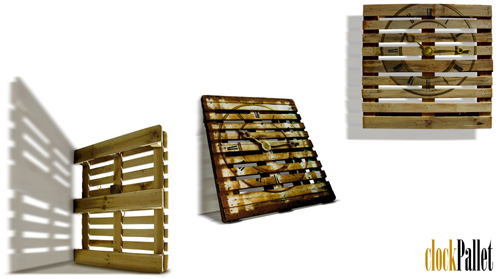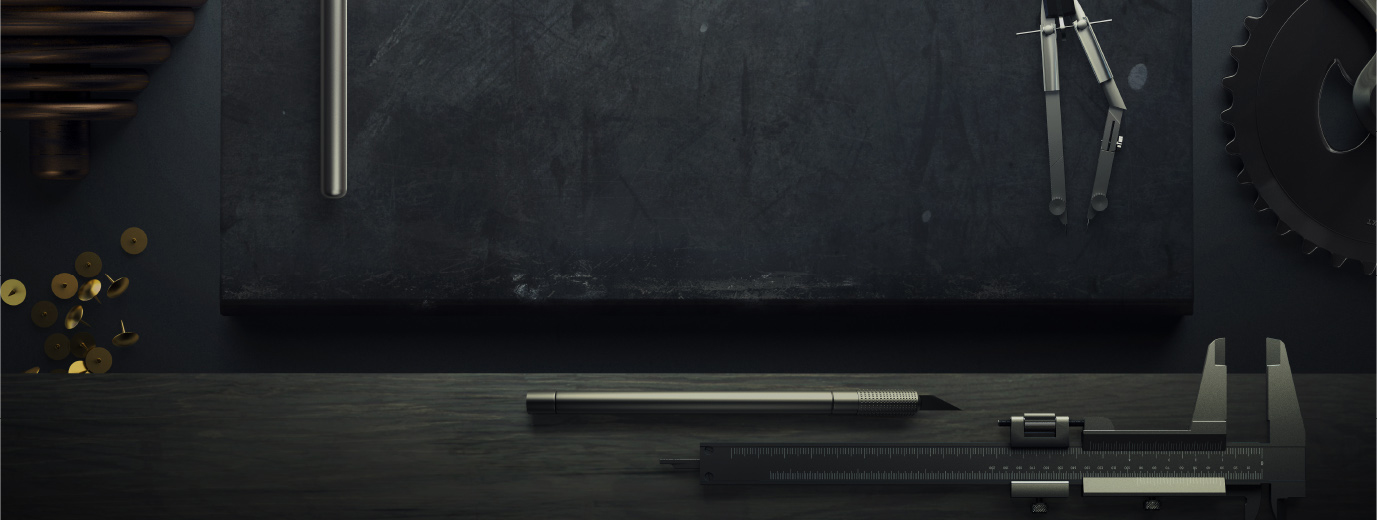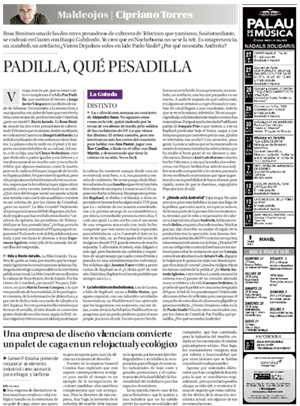
01 Jan Levante-EMV reports the presentation of Sanserif Creatius’ first pallet watch
We wanted to finish the year by eating the grapes in our own way. If at the end of the year everyone uses to make resolutions in order to improve or correct what has been done in the last 365 days, well… our was to create, in a record time, a piece respecting the philosophy of green growth and reducing the environmental impact of Sanserif Creatius.
Our challenge was to recover some of the industrial material in order to use it at home and in the office. It resulted in a pallet converted into a modern and ecological clock. Its name: Pallet Clock, a piece that will be available from the beginning of 2010.
Levante-EMV 26/12/09 · pág. 58
Text of the news: A company of Valencian designers have created an ecological clock through the structure of a pallet, as a bet to recover waste elements for its use at home or in the office. Sources of the company Sanserif Creatius explained that this contemporary and ecological medium measuring time is an example of the incorporation of “adding values” to furniture and accessories that are around us.
For the company manager, Ana Yago, the investment of the furniture industry should be guided by the commitment to use biodegradable or recyclable materials, the recovery of low-cost industrial materials and high performance and their use at home, as well as a focus on durability and functionality of furniture destined to domestic spaces.
According to her, this is “one of the few life preservers” left to an industry that has not been able to predict the new necessities of the buyer, which have now changed. Nevertheless, the furniture industry “has not found yet the way to adapt to them”. For Yago, consumers, while buying, choose values and functionality more than other factors that had been considered indispensable until not long ago.
Committing to processed materials that have already fulfilled the function for which they were originally thought, but that can still be very useful and reshape way of business that are suffering the effects of the current economic situation, are just some of their recommendations.


